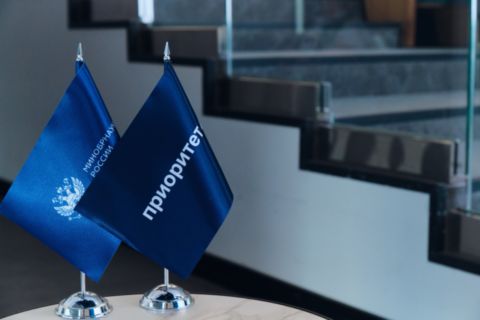On 29 and 30 June, first Vice-Rector of Research Anton Korzhov and Head of the Strategic Development Department of the Project Office Evgeny Belousov took part in an educational intensive at the Congress Center of the Bauman Moscow State Technical University in Moscow.
Participants of the event «Selection of experts of cross-university expertise within the framework of the Priority-2030 program» discussed the principles of mutual evaluation of universities, which is designed to become a new tool for the development of higher education institutions.
Cross-university expertise is a fundamentally new format for Russia, in which universities both evaluate each other and act as objects of evaluation. Such measures are designed, on the one hand, to guarantee the exchange of best practices and, on the other hand, to enhance innovation adoption in higher education.
Konstantin Bogonosov, Acting Director of the Center of Sociological Research, described the key objectives of the cross-university expertise project:
«The project solves three interrelated tasks. First, we are expanding the number of qualified experts by involving representatives of the university community. Secondly, based on this work, we are creating detailed profiles of universities, which will contain specific indicators of their work; these data will form the basis for the decisions of the program council. And most importantly, we are forming a new culture of professional interaction when leading universities, through mutual evaluation, set quality standards and exchange best practices».
The main feature of the new expert approach in the evaluation of universities of the Priority-2030 program is the change of the assessment pathways. Previously, universities were evaluated «top-down» in the system of vertical control. Now the professional community jointly develops quality standards.
Andrei Volkov, the scientific director of the Priority-2030 program, explained the essence of the new evaluation of universities on peer-review assessment:
«Peer-review is the main tool for evaluating the work of universities around the world, as universities are essentially unique organizations that cannot be evaluated according to a template. This approach is necessary when it comes to assessing quality, validity, and uniqueness and giving meaningful feedback to the university.
Historically, the Russian higher education system has been dominated by standardized control in the form of licensing and accreditation, but it does not allow evaluating development programs that go beyond standard practices. It will take several years for this new practice to become a functional institution in higher education».
Irina Zhukova, Director of the Center for Technological Leadership, spoke about the role of expert evaluation. She emphasized that field expertise plays a key role in analyzing the resources of universities and the implementation of their strategic projects.
«The work of the Center of Sociological Research is an important part of the multilevel evaluation system. Within the framework of the Priority-2030 program, a permanent expert group has been created under the Council. Field expertise is of particular importance: it allows assessing the resource availability of the university and the realism of bringing the declared projects to concrete results».
The new system is a step towards creating a modern, self-developing university community in Russia, where evaluation becomes a resource for development rather than a tool for control. The success of the initiative will depend on the willingness of universities to open dialogue and to work together to improve the quality of education.
Since 2025, the Ministry of Education and Science of Russia has been implementing the program «Priority-2030» within the framework of the national project «Youth and Children».
Based on the materials of the website https://sociocenter.info/




